-
Sharing Healthy Goals
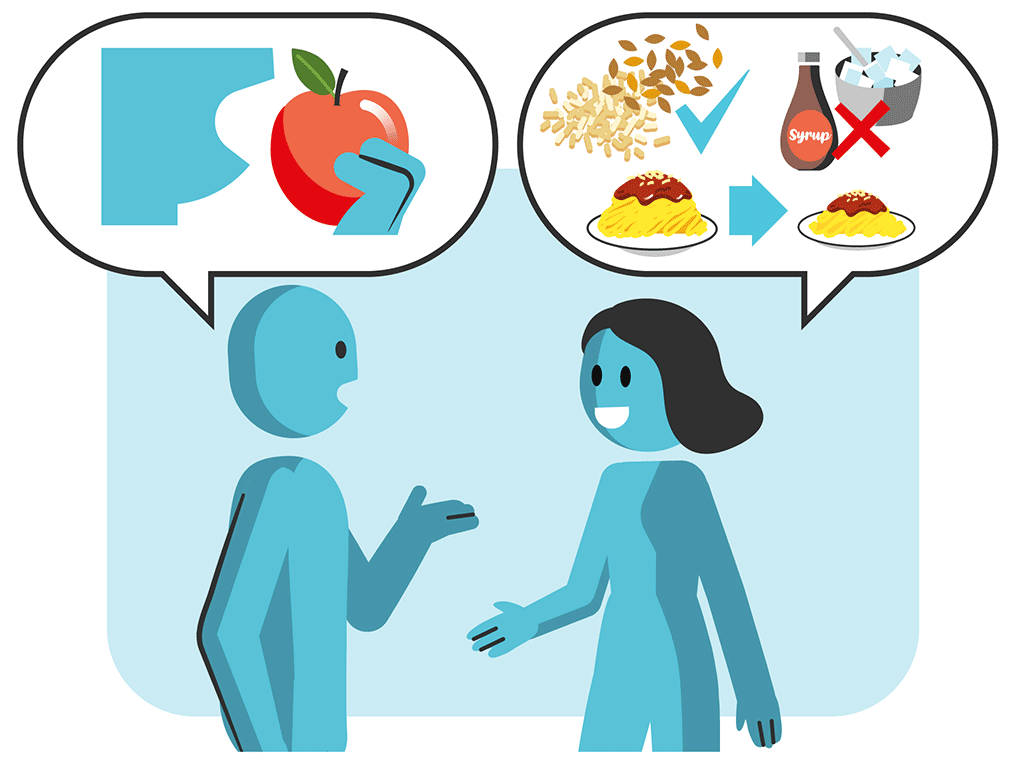
Sharing Healthy Goals One of the best ways to stay on track with your healthy lifestyle is to tell your family, friends and coworkers about your health goals. If they know you’re trying to eat healthier options, such as whole grains instead of refined carbohydrates, they may try to be more supportive. Family, friends and…
-
Congratulations
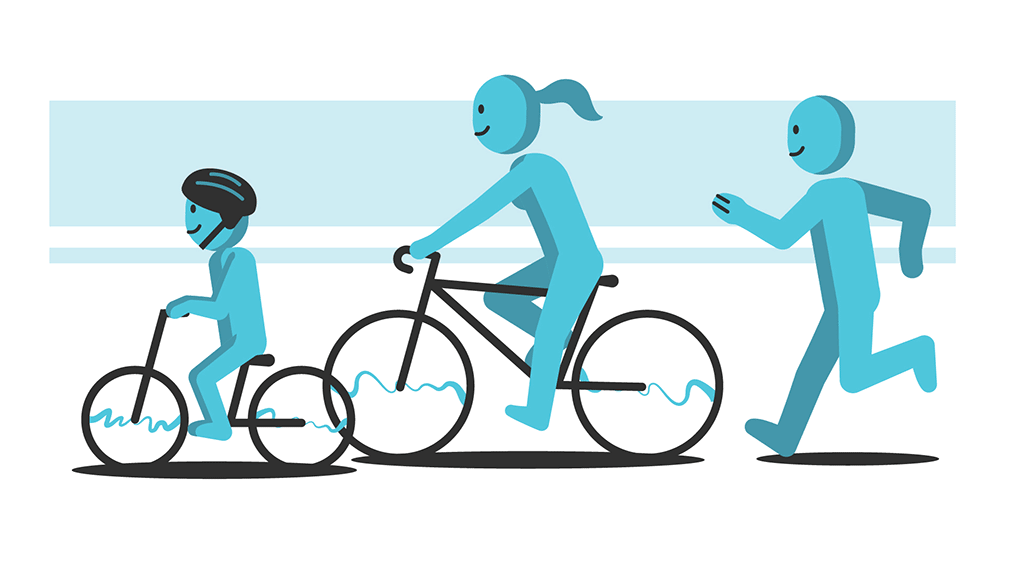
Congratulations! You have successfully completed the first half of your new lifestyle program. Take a moment and think back when you first started this journey. What changes have you noticed? We started with education, and weight logging. How has your weight changed since you first started this program? Do you notice any differences in how…
-
The Link Between Sitting Still and Type 2 Diabetes
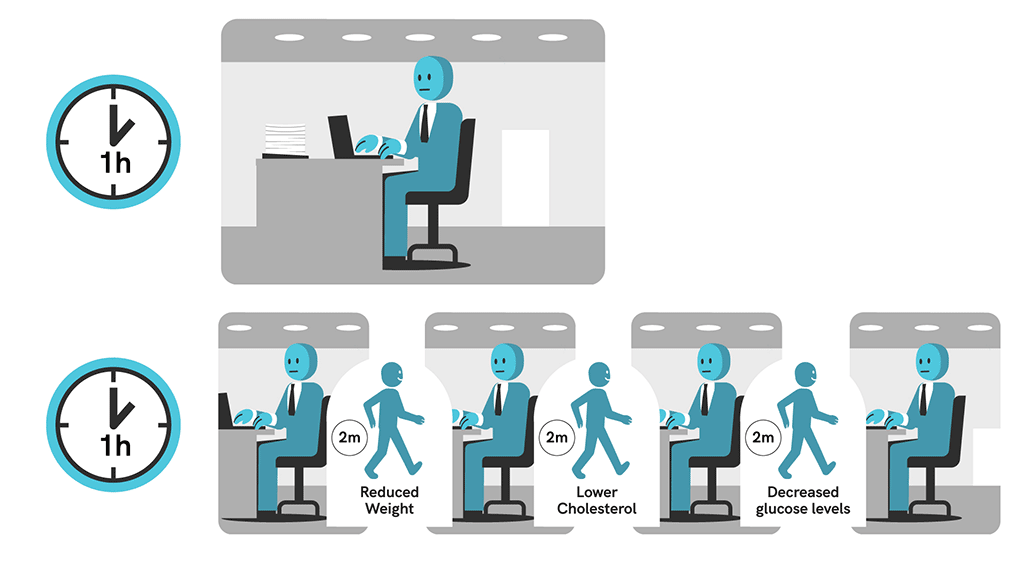
Why should I take a Fitness Break? Research has linked sitting for long periods of time with a number of health concerns, including a 112% increase in your risk of type 2 diabetes and a 147% increase in heart disease risk. Sitting for long periods of time burns fewer calories and can lead to weight…
-
Healthy Food Choices
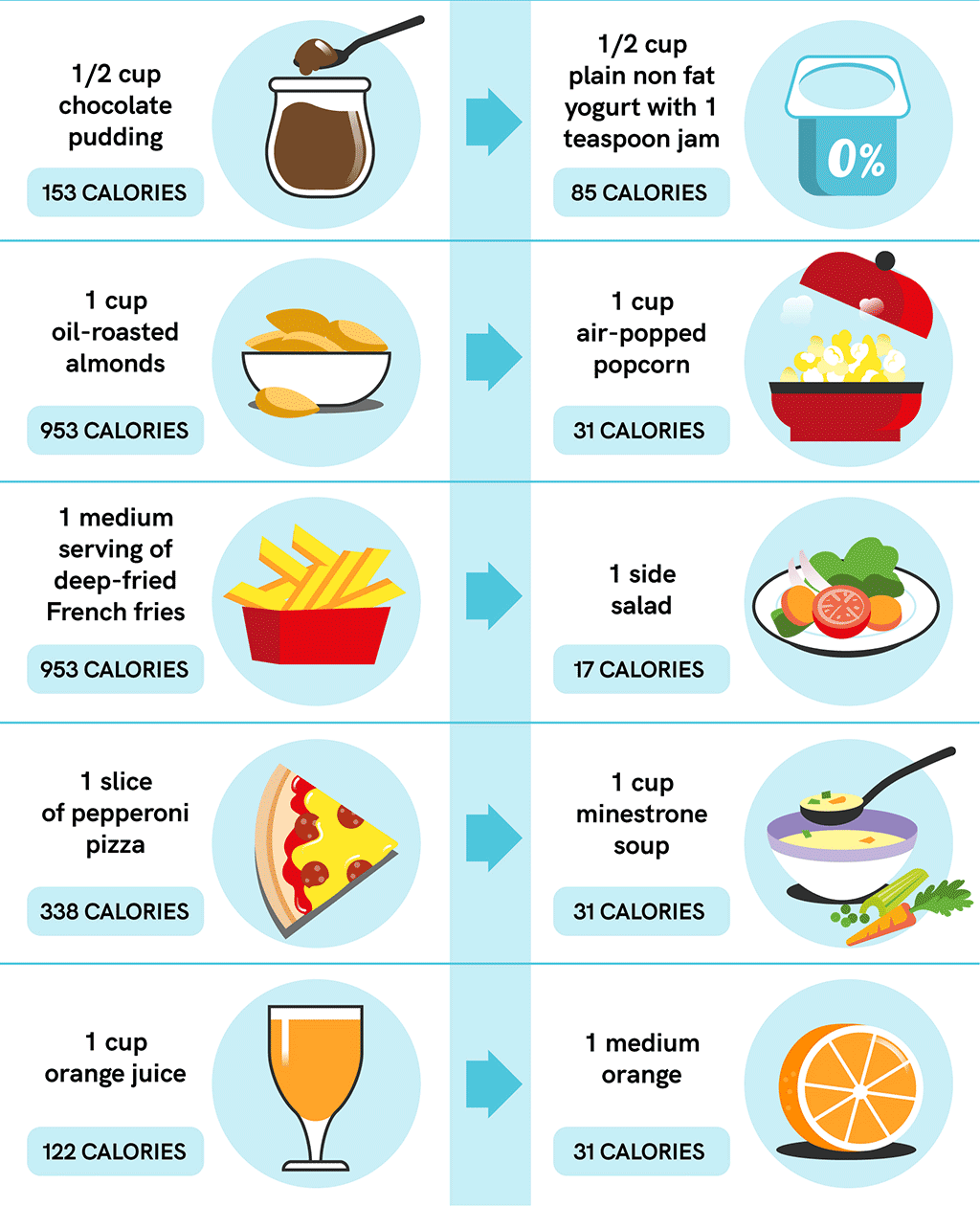
Healthy Choices Making healthy choices is part of a healthy approach to eating. As a general rule, you should choose items that: Are low in calories, fat, and sugar Are high in fiber and water Are high in vitamins, minerals, and protein Make Healthy Choices Enjoyable Here are some ways to make healthy choices enjoyable. …
-
Eat the Right Amount of Food
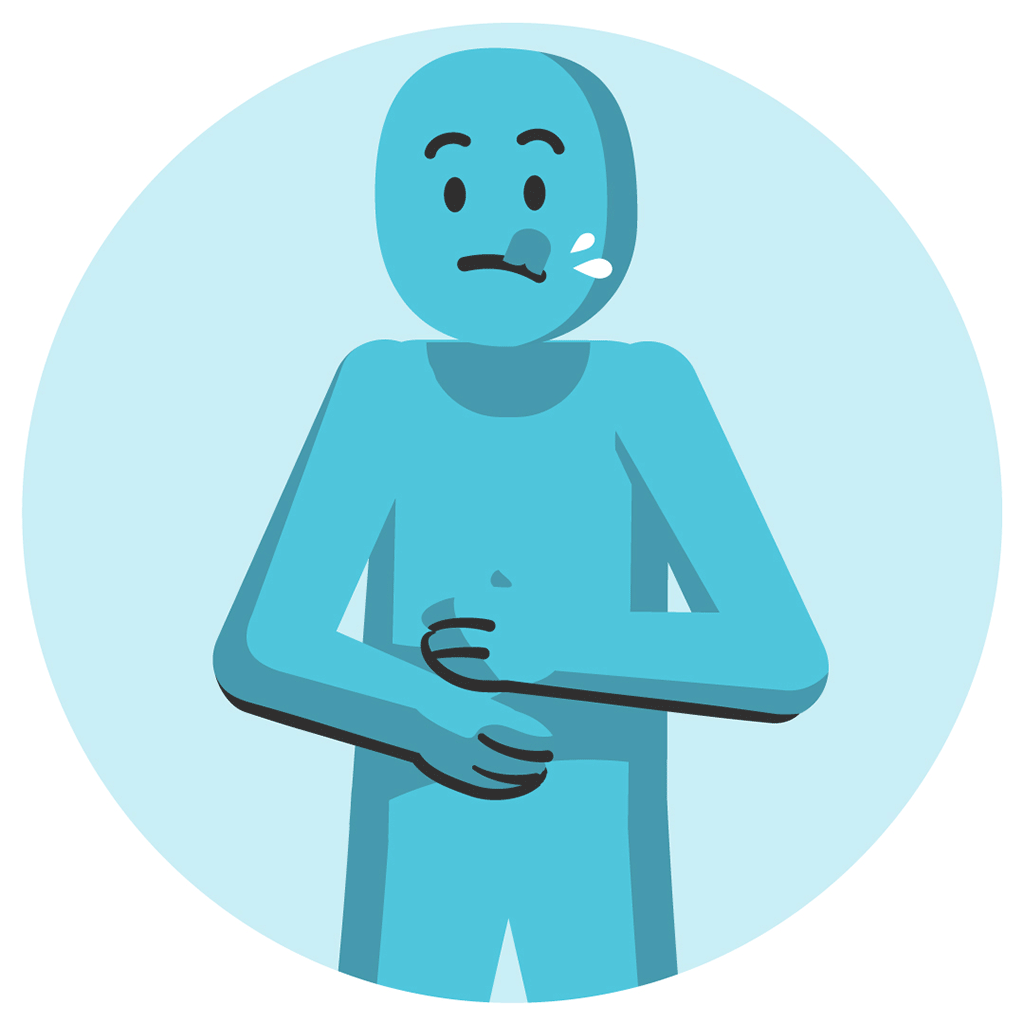
Eat the Right Amount of Food When you get hungry, you may feel a rumbling stomach, or a light headache. Some people feel irritable, or unable to concentrate. When you’re not hungry, you may eat because you feel bored, sad, or anxious, have happy memories of a certain item, or just like the way the…
-
It’s not a cheat, it’s a treat!

It’s not a cheat, it’s a treat! Preventing diabetes should always be your goal, and traveling will go smoothly if you do a little planning ahead. Trip planning should include ways to manage your diet and medications if you take any. A month or more before your trip, talk to your doctor or diabetes educator…
-
Reassessing Your Targets
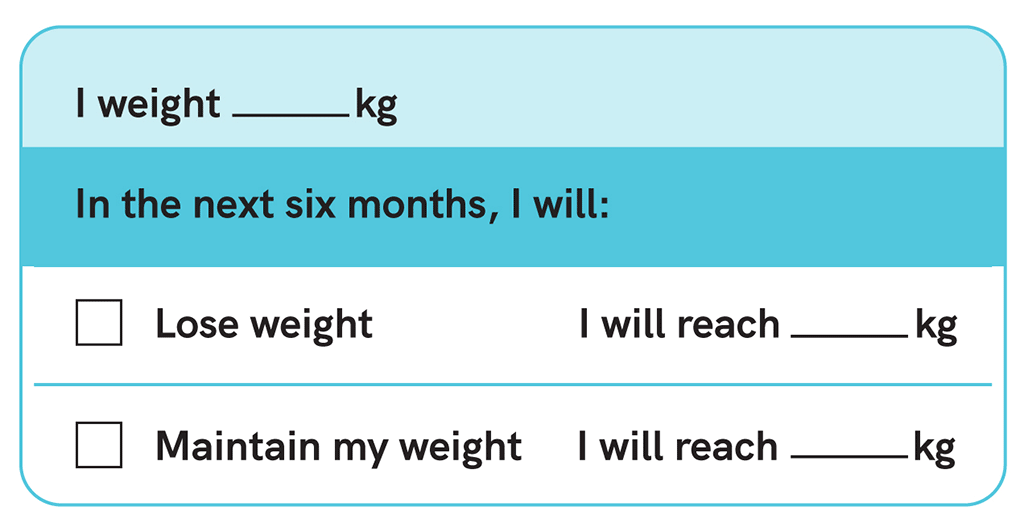
Congratulations You have successfully completed your lifestyle program. Take a moment to acknowledge your successes and celebrate what you’ve accomplished. Maintain Your New Lifestyle To maintain your new healthy weight, you have to look at your life in maintenance as a continuing journey. There will be ups and downs, but things will even out. Maintaining…
-
Exercise in Ramadan
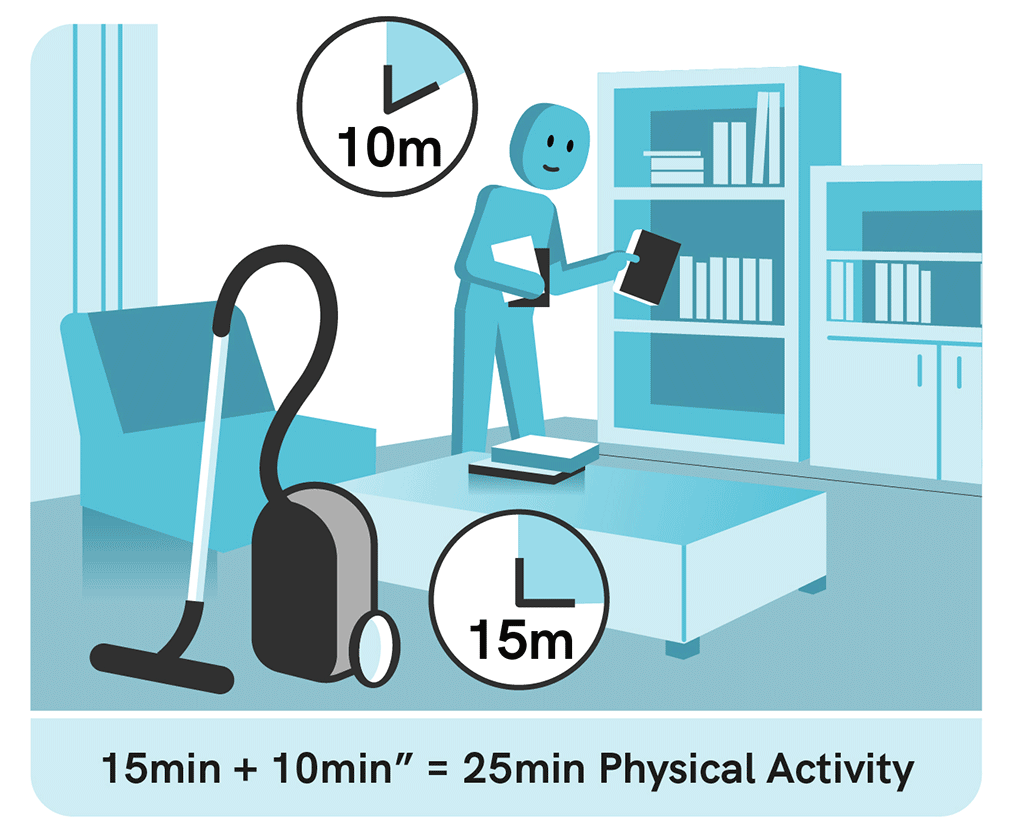
Lifestyle in Ramadan The month of Ramadan brings changes in lifestyle habits including prolonged fasting, different foods and meal timing, and longer prayer activities. Can people with prediabetes exercise in Ramadan? Although people fast for 12-20 hours based on time zones, increased caloric intake, reduced physical activity, and altered sleep patterns can affect metabolism and…
-
When to break the fast
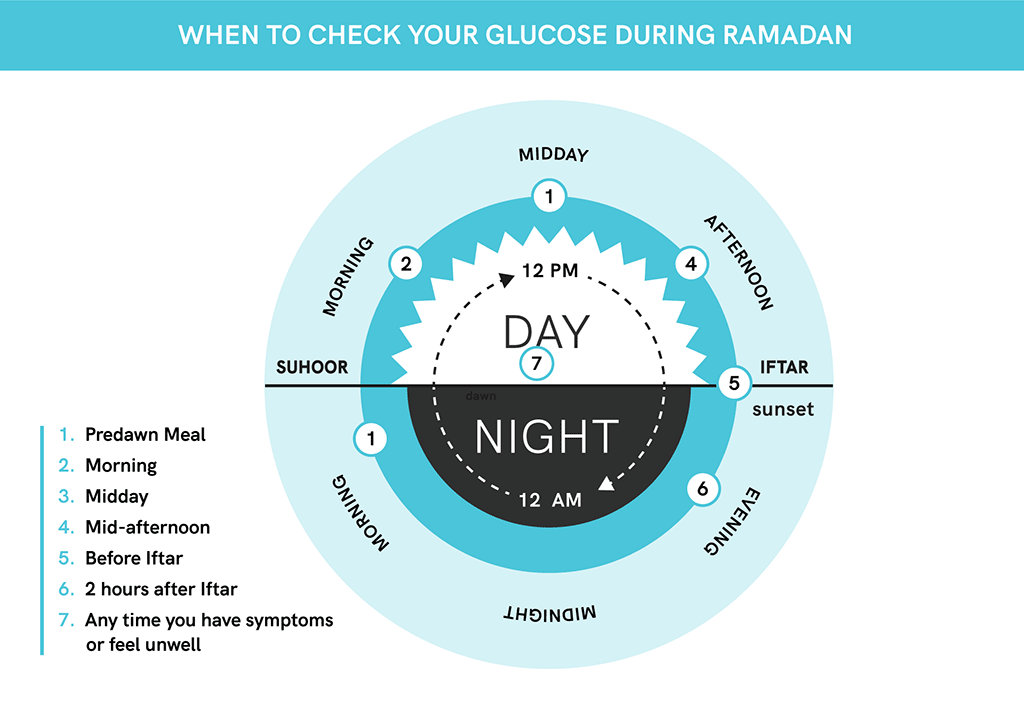
When to break your fast? It is very important to test your blood glucose levels several times daily during your fast, so you can check you are keeping safe. This is especially critical if you have type 1 diabetes or if you have type 2 diabetes and require insulin. Blood glucose monitoring and insulin injections…
-
What happens to the body during fasting?
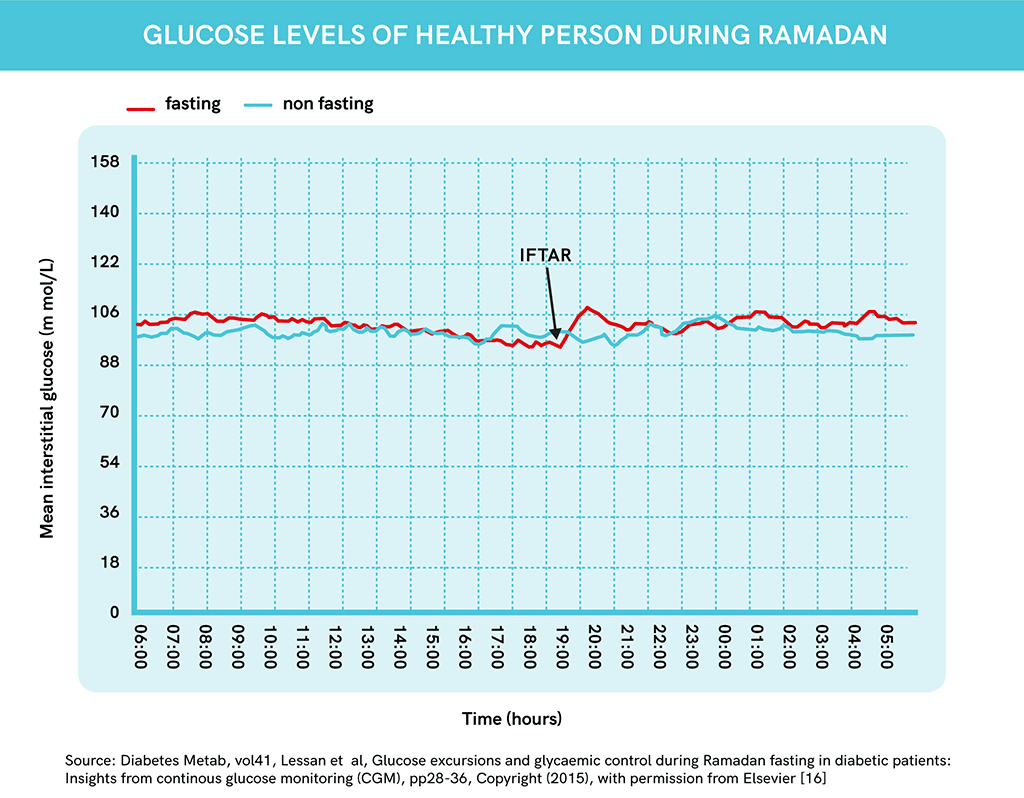
What happens to the body during fasting? When we fast, at about eight hours after our last meal, our bodies start to use energy stores through glucose and fat to keep our blood glucose levels normal. For most people this is not harmful. Some people with diabetes may not be able to keep their glucose…